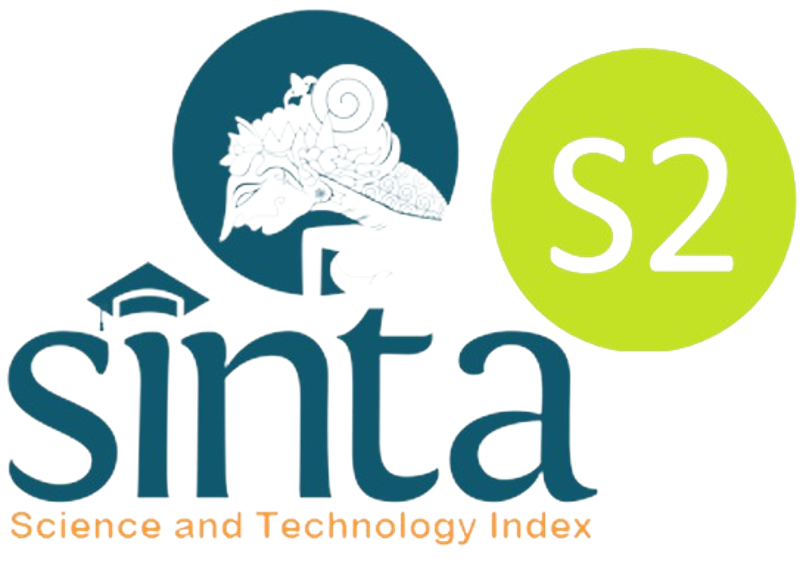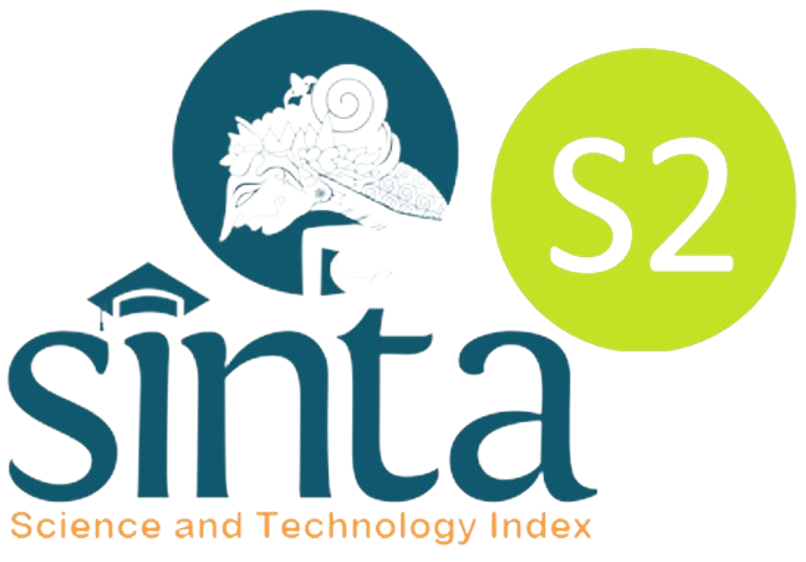Development of Online Learning Media using Guided Inquiry to Improve Science Process Skills of Elementary School Students Assisted by Microsoft Office 365
DOI:
https://doi.org/10.26740/jpps.v11n2.p142-151Keywords:
Guided inquiry, Microsoft office 365, Science process skillsAbstract
The research aims to produce a valid, practical, and effective Microsoft Office 365 guided inquiry learning tool to practice students' science process skills in elementary school. The development of this learning device uses a Four-D model. It is tested on students at Elementary School, in grade IV, class A and B using the design of one Group Pretest-Posttest design. The learning devices developed include syllabus, lesson plans, teaching materials, student worksheets, and science process skills tests with teaching materials themed light properties. Data collection uses validation, observation, and test methods—data analysis techniques using N-Gain, Paired samples t-test, and independent t-test. Science process skill results increased by an average N-Gain of more than 75% or categorized high. The data analysis techniques used to determine the improvement of science process skills are by using Paired samples t-Test that there is an increase in the scientific process skills in the grade IV Elementary School after learning activities. The independent t-test showed that the learning devices used in the sample group had a relatively similar (consistent) influence. Based on data analysis, it can be concluded that the guided inquiry model online science learning device effectively improves the science process skills of elementary school students. This study implies that Microsoft Office 365-assisted online science learning tools have the potential to be a solution and alternative to improve science process skills.
Downloads
References
Akinbobola, O. & Olufunminiyi, A. (2015). Improve the transfer of knowledge in physics through effective teaching strategies. Journal of Education and Practice, 6(16), 37-44.
Alismail, H.A., & McGuire, P. (2015). 21st century standards and curriculum: Current research and practice. Journal of Education and Practice, 6(6), 150-154.
Alkan, F. (2016). Experiential learning: Its effects on achievement and scientific process skills. Journal of Turkish Science Education, 13(2), 15-26. http://doi.org/10.12973/tused.10164a
Anam, K. (2015). Inquiry-based learning: Methods and applications. Yogyakarta: Student Library.
Andriani, D.W. & Yonata, B. (2018). Train students' higher-order thinking skills through the implementation of an inquiry learning model on chemistry. Journal of Chemistry Education Unisa, 7(3), 333-339. https://doi.org/10.26740/ujced.v2n2.p%25p
Aydo?du, B., Erkol, M., & Erten, N. (2014). Investigation of the science process skills of primary school teachers in several variables: Perspectives from Turkey. Asia-Pacific Forum on Science Learning and Teaching, 15(1), 1-28.
Daryanto & Karim, S. (2017). Pembelajaran abad 21. Yogyakarta: Gava Media
Dementiy, L.I., & Grogoleva, O.Y. (2016). The structure of responsibility of preschool and primary school age children. Procedia - Social and Behavioral Sciences, 233, 372-376. https://doi.org/10.1016/j.sbspro.2016.10.161.
Diawati, S.M., Kardi, S., & Supardi, Z.A.I. (2016). Development of guided inquiry learning tools to improve junior high school students' learning outcomes. Journal of Science Education Research, 6(1), 1100-1106. https://doi.org/10.15294/jpii.v5i1.5794
Duda, A., Julia, A., Paulina, C., Justyna, J., & Przemyslaw, K. (2019). Quality and nutritional/textural properties of durum wheat pasta enriched with cricket powder. Foods, 8(46), 1-10. http://doi.org/10.3390/foods8020046
Duda, H., Herawati, S., & Newcombe, P. (2019). Enhancing different ethnicity science process skills: Problem-based learning through practicum and authentic assessment. International Journal of Instruction, 12. 1207-1222. http://doi.org/10.29333/iji.2019.12177a
Ernawati, E., & Safitri, R. (2017). Analisis kesulitan guru dalam merancang rencana pelaksanaan pembelajaran mata pelajaran fisika berdasarkan kurikulum 2013 di kota banda aceh. Jurnal Pendidikan Sains Indonesia, 5(2), 49-56. https://doi.org/10.24815/jpsi.v5i2.9817
Hardianti, T., & Kuswanto, H. (2017). Differences between levels of inquiry: improvement of process skills in senior secondary schools in Indonesia. International Journal of Instruction, 10(2), 119-130. ttps://doi.org/10.1088/10.12973/iji.2017.1028a
Johnson, Sarah, A., & Cuevas, J. (2016). The effects of inquiry project-based learning on student reading motivation and student perceptions of inquiry learning processes. Georgia Educational Researcher, 13(1), 49-83. http://doi.org/10.20429/ger.2016.130102.
Kusumastuti, A., Sudiyanto, S., & Octaria, D. (2016). faktor-faktor penghambat guru dalam melaksanakan kurikulum 2013 pada pembelajaran akuntansi di smk negeri 3 surakarta. Tata Arta: Jurnal Pendidikan Akuntansi, 2(1), 118-133.
Lestari, M.Y., & Diana, N. (2018). Keterampilan proses sains (KPS) in the practical implementation of basic physics I. Indonesian Journal of Science and Mathematics Education, 1(1), 49-54. https://doi.org/10.24042/ijsme.v1i1.2474
Mahmudah, F.L., & Atun, S. (2017). Antibacterial activity test of temukey (boesenbergia pandurata) ethanol extract against streptococcus mutans bacteria. Scientific Journal of Research, 22(1), 59-66. https://doi.org/10.21831/jps.v22i1.15380
Mallozi, F., & Heilbronner, N.N., (2013). The effects of using interactive student notebooks and specific written feedback on seventh grade students' science process skills. Electronic Journal of Science Education, 17(3), 1-24.
Marlena, D., Sari, D.L., Yanti, R., Agustina, R., & Walid, A. (2019). Penyusunan instrumen tes keterampilan proses sains pada mata pelajaran IPA di SMPN 14 kota Bengkulu. Jurnal Penelitian Pendidikan Sains, 9(1), 1763-1765. https://doi.org/10.26740/jpps.v9n1.p1763-1765
Ningsih, R., Susantini, E., & Sugiarto, B. (2017). Pengaruh penggunaan perangkat pembelajaran IPA terpadu tipe connected terhadap kompetensi pengetahuan dan keterampilan siswa SMP negeri 2 kelumpang tengah. Jurnal Penelitian Pendidikan Sains, 6(2), 1355-1362. https://doi.org/10.26740/jpps.v6n2.p1355-1362
Ozgelen, S. (2012). Student Science Process Skills within the framework of the cognitive domain. Eurasia Journal of Mathematics, Science & Technology Education, 8(4), 283-292. https://doi.org/10.12973/eurasia.2012.846a
Patacsil, F.F., & Tablatin, C.L.S. (2017). Exploring the importance of soft and hard skills as perceived by it internship students and industry: A gap analysis. Journal of Technology and Science Education, 7, 347-368. https://doi.org/10.3926/jotse.271
Ramadhani, P.R., Akmam, A., Desnita, D., & Darvina, Y. (2019). Analisis keterampilan proses sains pada buku ajar fisika sma kelas XI semester 1. Pillars of Physics Education, 12(4), 649-656. http://dx.doi.org/10.24036/7130171074
Rayandra, A. (2012). Kreatif mengembangkan media pembelajaran. Jakarta: Referensi Jakarta.
Riduwan. (2015). Dasar-dasar statistika. Bandung: Alfabeta.
Sulistyorini, I.S., Edwin, M., & Arung, A.S. (2016). Analisis kualitas air pada sumber mata air di kecamatan karangan dan kaliorang kabupaten kutai timur. Jurnal Hutan Timur, 4(1), 64-77. http://dx.doi.org/10.20527/jht.v4i1.2883
TSM Lecturer Team. (2020). Microsoft office 365 usage guide. Trisakti School of Management, 17, (3).
Downloads
Published
How to Cite
Issue
Section
License
Copyright (c) 2022 JPPS (Jurnal Penelitian Pendidikan Sains)

This work is licensed under a Creative Commons Attribution-ShareAlike 4.0 International License.
 Abstract views: 849
,
Abstract views: 849
, PDF Downloads: 729
PDF Downloads: 729












